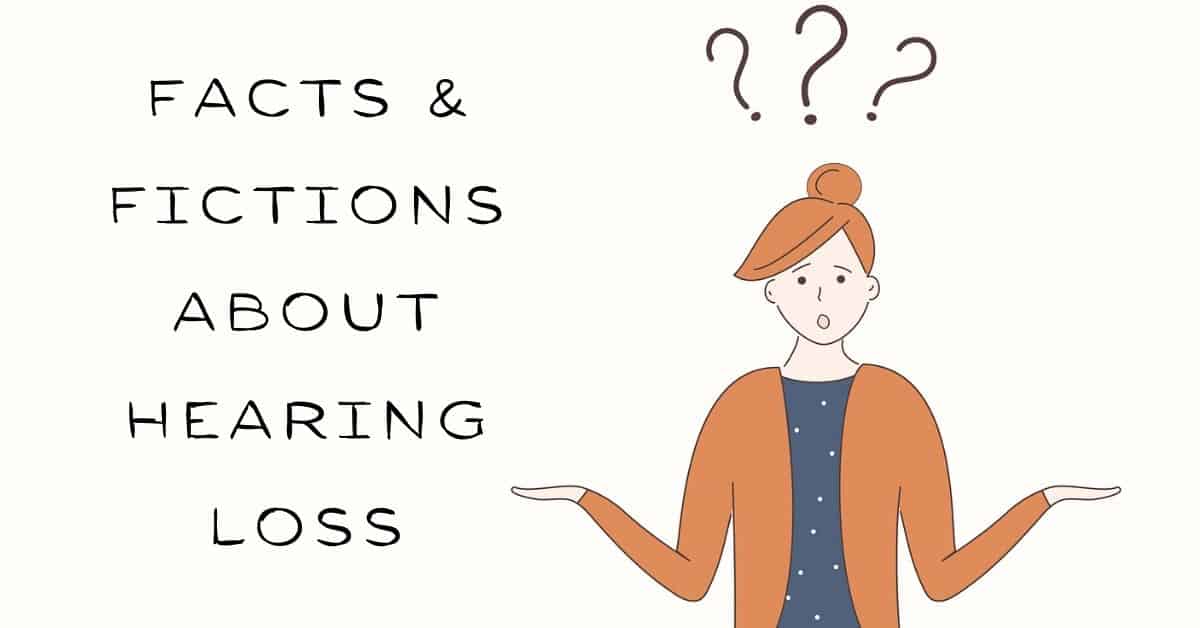
There are many misunderstandings about hearing loss and hearing aids out there. Have you heard about these common hearing loss misconceptions? We help you dispel some of these myths here, to help to come to a better understanding of the nature of hearing loss.
Myth #1: Hearing loss isn’t all that common
The reality is that, as a natural part of life and aging, hearing loss affects far more people than you might know. Research tells us there is a degree of hearing loss suffered by around 20 percent of Americans or 48 million people. That’s a lot of people and makes it likely to include your own friends and family members.
Myth #2: Only older adults are affected by hearing loss
Fact: An estimated 48 million people in the United States are dealing with hearing loss, and about two-thirds are under the age of 65. A 2010 survey by the American Medical Association Journal reviewing a comprehensive data collection of the U.S. population found that in one or both ears, 1 in 5 children aged 12 to 19 displayed evidence of hearing loss. The World Health Organization warned that 1.1 billion teenagers and young adults are at risk of hearing loss “because of the unsafe use of personal audio devices, including smartphones, and exposure to harmful sound levels in noisy entertainment venues such as nightclubs, bars, and sporting events.”
Myth #3: The sounds I listen to daily aren’t harmful.
Fact: hearing loss exists. And not just for people working with heavy machinery or in concert venues. Some hobbies can cause long-term hearing damage. If you are a woodworker, use power tools, mow the lawn or shoot guns recreationally, you should wear earplugs. Such tasks are incredibly harmful to your hearing, because of both the length of exposure time and the closeness you are to the source of the noise.
Also, care should be taken when listening to music in earbud headphones, because proximity to the eardrum means that hearing loss can occur rapidly. As a rule, the louder the song, the shorter the time before hearing loss occurs, you will listen to it. Many personal music devices are now equipped with a volume-limiting function; noise-cancelling headphones can also help keep the music volume low.
Myth #4: Everyone mumbles nowadays, so it isn’t my problem
Fact: If you’ve ever heard someone talking into a distorted microphone, it may be loud enough, but there’s a degree of distortion that makes it difficult to understand.
That’s what is happening to your hearing – a high-frequency loss of sound leads to certain consonants being difficult to comprehend, which leads to misunderstandings over certain words such as ‘cat’ and ‘sat.’ Sure, you can continue asking others to speak more clearly, but eventually, you’ll have to ask yourself why others can understand perfectly clearly.
Myth #5: I don’t need hearing aids yet
Fact: The reality is that even the slight hearing loss should be handled as soon as possible. Early intervention is the secret to maintaining your hearing and remaining involved in your life.
What if you don’t treat your hearing loss? The unfortunate reality is that the auditory cells in your brain need stimulation. If you have hearing loss and cannot detect different frequencies, there is little work to do with the cells of your head that are used to listening to certain sounds, and this means that they will actually shrivel up. Those cells will not return when you get a hearing aid, put simply, after a while, your hearing will never be as it once was.
Myth #6: My doctor would let me know if I had a hearing problem.
Fact: Sadly, if you have hearing loss, the doctor will likely not detect it. Only about 14 percent of doctors can scan for hearing loss. Many people take their ability to converse normally with the doctor as a sign that their hearing is fine. But these are ideal conditions for conversation, often one-to-one discussions in a small room. To assess the level of hearing loss requires a qualified hearing specialist.
Myth #7: Hearing loss can’t be helped.
Fact: Approximately 95 percent of people have a hearing loss that can be treated. And if tinnitus is a problem with hearing aids, it too can be improved. Most models of hearing aids come with technology that can help you with your tinnitus symptoms
